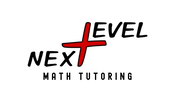|
Sounds obvious, right? But it's a concept that can be overlooked in the teaching process for math students.
Here is a success story from a former Algebra I student in the Monroe area. She points out how one of the points of emphasis of Next Level Math Tutoring, the ability to find and correct your mistakes on the fly, benefited her and helped take her math skills to the next level: "Mr. Paul was a great tutor. He showed me how to do the work and find my own mistakes. After a few weeks of my tutoring, my C's and D's went to high B's and low A's. He really helped me understand the concepts and also improve." - A. Bankhead We constantly encourage my students to be able to find and fix their own errors in their work for two reasons: 1. It displays a solid and/or improving grasp of a concept when a student is able to identify and correct his or her own error in a math problem. When a student works through a concept under our guidance, a very common question we'll get once a problem is finished, or even while working the problem, is "Is this right?" Often, I will respond as a challenge to the student, "You tell me!" In response, students will usually review scratch work for computational errors and/or retrace their thought process (with light redirection when needed). More often than not, the student is able to answer their own question. The process does not always work perfectly, but our students improve in this area over time with consistent tutoring sessions. 2. It builds confidence and self-sufficiency As tutors, we will of course redirect student errors that they cannot catch during a reteaching session or as a last resort. However, remember that when a student takes an assessment, he or she won't have the benefit of asking ANYONE, "Is this right?" as a crutch. For this reason, we make it a point to kick the crutches and training wheels off by not building that habit too much in a tutoring session either, especially once that student displays understanding. When a student gets an answer for an open response question, he or she will be used to reviewing the process for that concept along with their work to know that he or she will get most if not all of the credit for the problem. Conversely, when a student gets an answer for a multiple choice problem that is not one of the available answer choices, he or she will not panic and will be comfortable with re-evaluating the work for an error. The young, bright mind referenced above recalled this point of emphasis as a vital factor in taking her math skills to the next level, and we believe that it can be just as helpful and vital for math scholars everywhere.
9 Comments
|
AuthorPaul Caliste is the owner of Next Level Math Tutoring with shareable knowledge from his experience in math education. ArchivesCategories |


 RSS Feed
RSS Feed